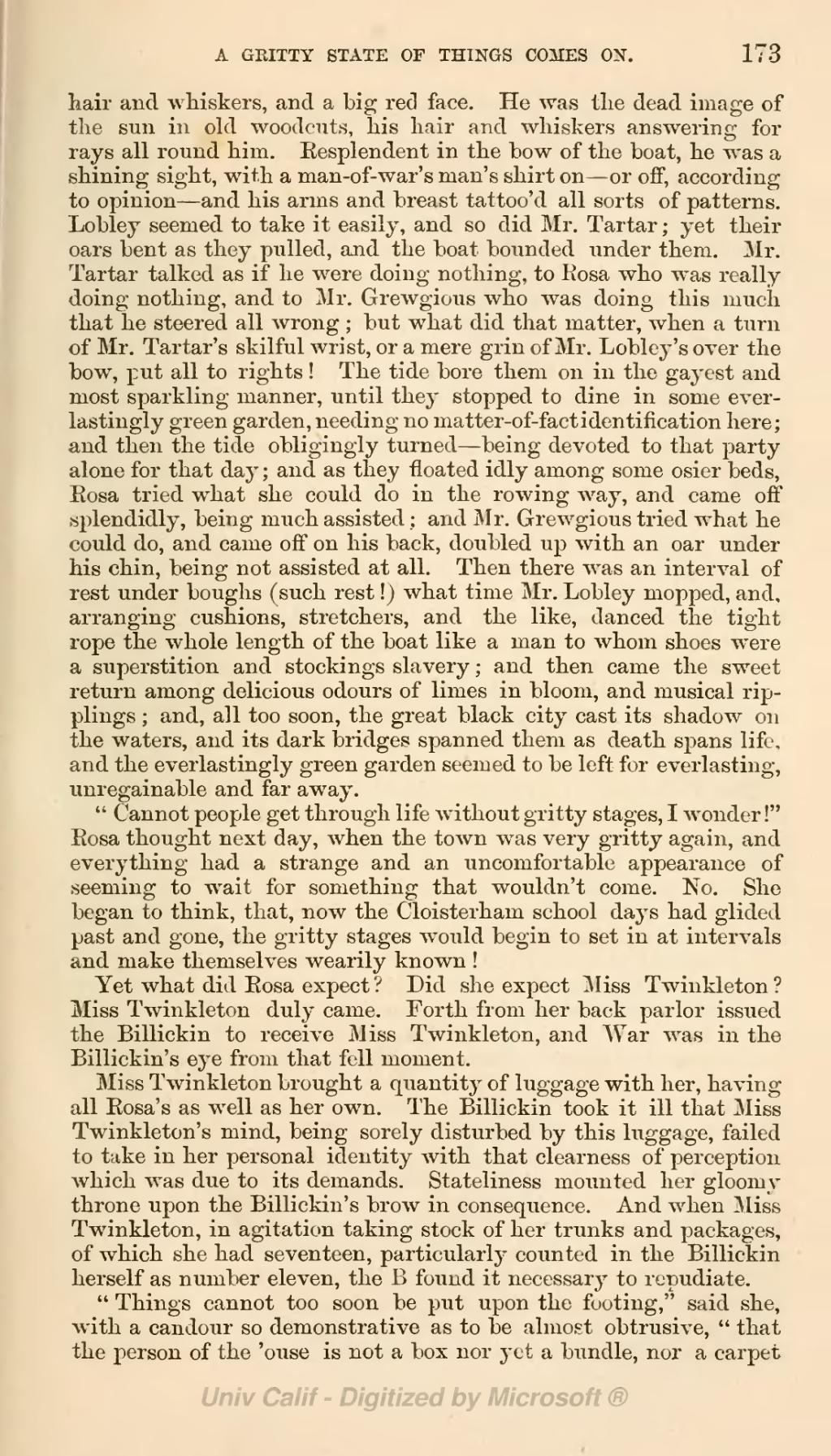hair and whiskers, and a big reel face. He was the dead image of the sun in old woodcuts, his hair and whiskers answering for rays all round him. Resplendent in the bow of the boat, he was a shining sight, with a man-of-war's man's shirt on—or off, according to opinion—and his arms and breast tattoo'd all sorts of patterns. Lobley seemed to take it easily, and so did Mr. Tartar; yet their oars bent as they pulled, and the boat bounded under them. Mr. Tartar talked as if he were doing nothing, to Rosa who was really doing nothing, and to Mr. Grewgious who was doing this much that he steered all wrong; but what did that matter, when a turn of Mr. Tartar's skilful wrist, or a mere grin of Mr. Lobley's over the bow, put all to rights! The tide bore them on in the gayest and most sparkling manner, until they stopped to dine in some ever-lastingly green garden, needing no matter-of-fact identification here; and then the tide obligingly turned—being devoted to that party alone for that day; and as they floated idly among some osier beds, Rosa tried what she could do in the rowing way, and came off splendidly, being much assisted; and Mr. Grewgious tried what he could do, and came off on his back, doubled up with an oar under his chin, being not assisted at all. Then there was an interval of rest under boughs (such rest!) what time Mr. Lobley mopped, and, arranging cushions, stretchers, and the like, danced the tight rope the whole length of the boat like a man to whom shoes were a superstition and stockings slavery; and then came the sweet return among delicious odours of limes in bloom, and musical ripplings; and, all too soon, the great black city cast its shadow on the waters, and its dark bridges spanned them as death spans life, and the everlastingly green garden seemed to be left for everlasting, unregainable and far away.
"Cannot people get through life without gritty stages, I wonder!" Rosa thought next day, when the town was very gritty again, and everything had a strange and an uncomfortable appearance of seeming to wait for something that wouldn't come. No. She began to think, that, now the Cloisterham school days had glided past and gone, the gritty stages would begin to set in at intervals and make themselves wearily known!
Yet what did Rosa expect? Did she expect Miss Twinkleton? Miss Twinkleton duly came. Forth from her back parlor issued the Billickin to receive Miss Twinkleton, and War was in the Billickin's eye from that fell moment.
Miss Twinkleton brought a quantity of luggage with her, having all Rosa's as well as her own. The Billickin took it ill that Miss Twinkleton's mind, being sorely disturbed by this luggage, failed to take in her personal identity with that clearness of perception which was due to its demands. Stateliness mounted her gloomy throne upon the Billickin's brow in consequence. And when Miss Twinkleton, in agitation taking stock of her trunks and packages, of which she had seventeen, particularly counted in the Billickin herself as number eleven, the B found it necessary to repudiate.
"Things cannot too soon be put upon the footing," said she, with a candour so demonstrative as to be almost obtrusive, "that the person of the 'ouse is not a box nor yet a bundle, nor a carpet
